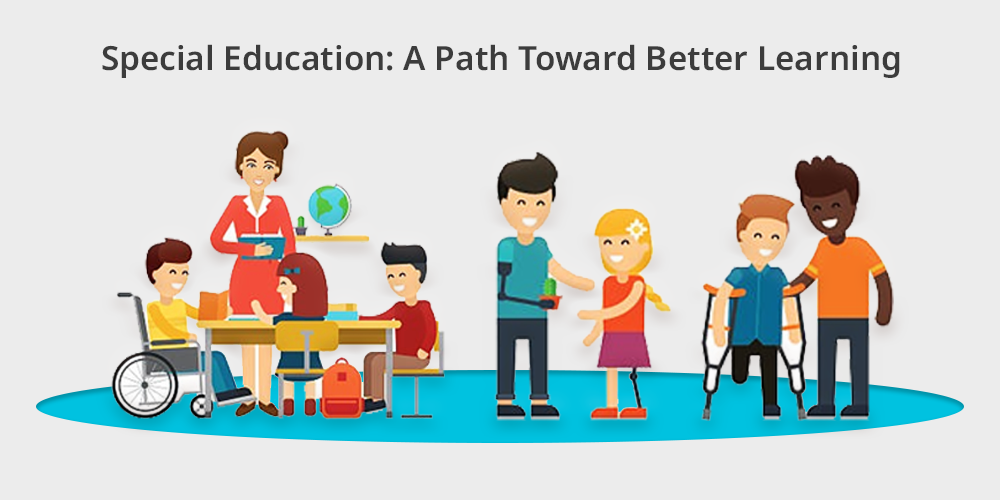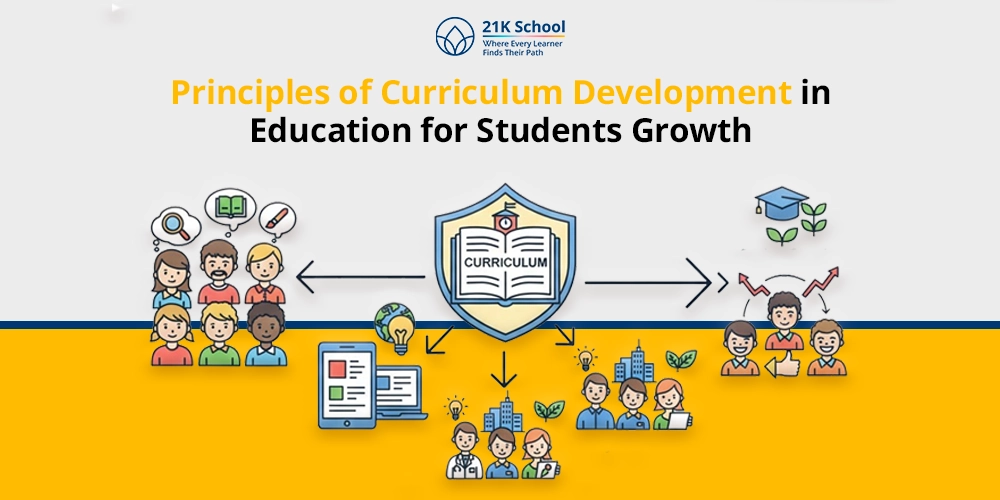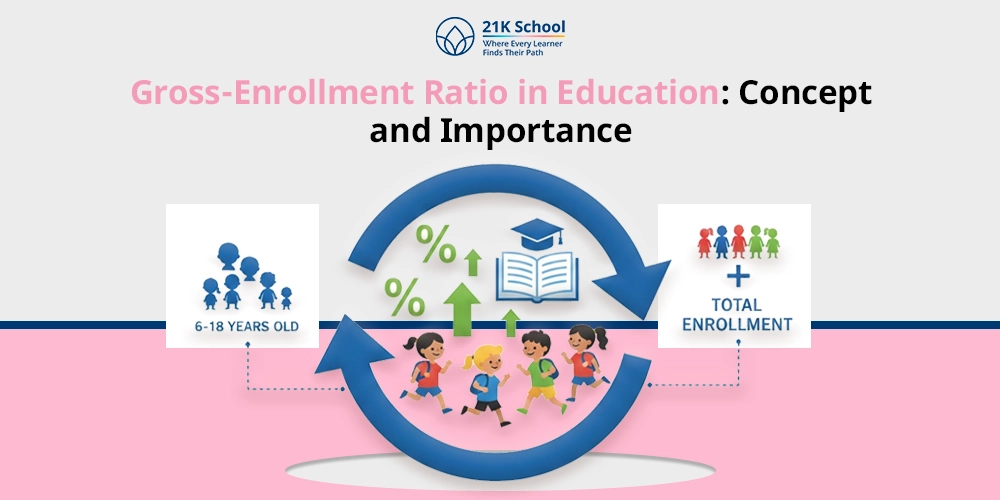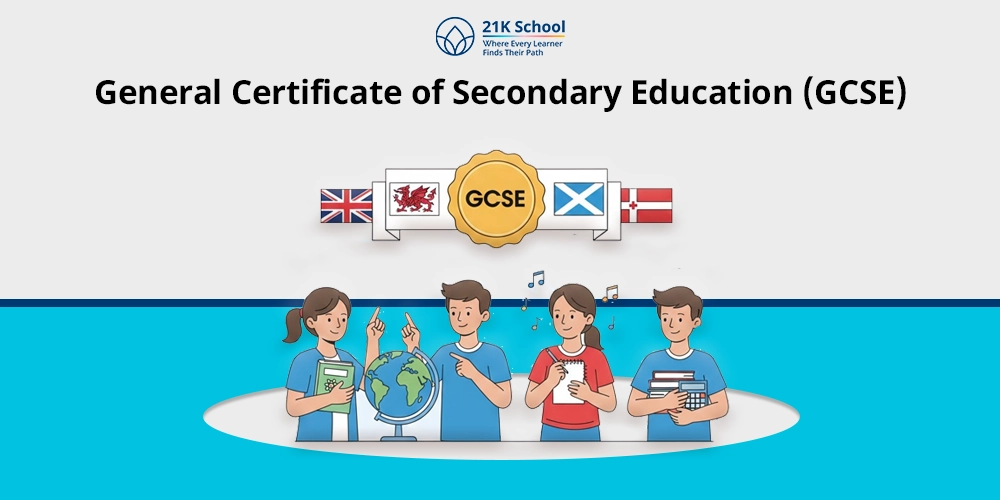
Education is a key to growth, success and confidence. And every child is different and that makes them unique in their own way.
But for some kids learning becomes a unique challenge that needs more support and attention than normal learning.
It’s not about categorizing children based on their abilities. It’s all about providing each child the right sort of education that they deserve.
This blog is all about what special education really means, why it is essential and how it makes a difference in students’ lives.
Contents
- What is Special Education?
- History of Special Education in India
- Goals and Objectives of Special Education
- 8 Core Principles of Special Education
- Importance of Special Education
- Characteristics of Special Education
- Types of Special Educational Needs
- Key Components of Special Education
- Availability of Technology and Innovation in Special Education
- Special Educational Needs: A New Look
- Special Education and Inclusive Education
- Special Education in Schools
- Special Education Courses for Special Education
- Over to You: Because Every Child is Unique
What is Special Education?
Whether you are a parent, teacher or curious individual, understanding special education for kids helps you in understanding the new teaching methods
Special Education is a type education technique designed to facilitate individualized instructions and support to students with disabilities.
The method is ideal for students who are getting learning challenges especially with the prominent rise of AI in special education . It ensures that students access high quality education designed to make disabled kids strong.
Special Education aims to guide these students with modified curriculum, specialized teaching methods, and provide extra attention to make them succeed.
This academic social-emotional learning is ideal for special needs students. It’s time to unlock the potential with the right education system.
History of Special Education in India
The history of special education showcases the growing recognition of human rights and the need to facilitate better opportunities to disabled individuals.
In early times, kids with disabilities were often excluded from groups, especially formal education. People in society misunderstood and stigmatized them.
1. Early Development
But the journey of special education begins with the establishment of a school for the deaf and blind.
In the late 1880s this first school was marked as the beginning of special education in India. With time people understand the needs of special education.
2. Post-Independence Period
Later in the post-independence period the government played a crucial role in the development of special education.
Government started providing various facilities such as educational, rehabilitation, and social services for people with disabilities.
Different programs created to ensure equal opportunities in education like:
- The Integrated Education for Handicapped Children Program (IEDC) in 1974.
- The National Policy for Persons with Disabilities in 2006
- The Sarva Shiksha Abhiyan (SSA)
- Right to Education Act (RTE) in 2010.
3. Current Scenario
Special education in India is growing and uplifting in both offline and online learning. Both public and private sectors play a major role.
From online schools like 21K School to NGO each dedicated to providing high-tech education to disabled students.
Organizations are focusing on providing challenge free solutions. This ensures access to quality education and support services for all children with disabilities.
With the help of online learning special education is growing and spreading awareness to create a positive learning environment for special needs students.
Goals and Objectives of Special Education
The concept of special education is ideal for special needs students. However, technology and innovation make drastic changes in the 21st century.
The aim is to provide individualised support to students with disabilities. These changes help them to gain the full potential and participate in daily activity without any hesitation.
The goals and objectives of special education consist of maximizing academic achievement, promoting independence, and supporting emotional and behavioral growth. It adds to understanding the importance of the social emotional learning
Some of the goals and objectives of special education are:
1. Academic Achievement
Academy achievement for students with disabilities is the first and foremost objective. Here special students work on different subjects for improvement.
With the help of special education, the goal of achieving maximum learning potential, promotes independence in order to help students to feel fulfilled in life.
2. Independence and Community Participation
One of the primary goals of special education is ensuring independence and community participation.
These help disabled students to live their life without any obstacles and participate in various community programs.
3. Emotional and Behavioral Support
In special education emotional and behavioral support help students to understand social emotional learning skills.
The goal is increasing self-awareness, improving self-regulation, and promoting positive social interactions. It helps enhance the benefits of social learning
It teaches students how to express themselves, manage problems and build a healthy relationship in the community.
4. Individualized Education Programs
Individualised education programs are initiatives for special children to gain full potential and opportunities.
By providing personalized instructions, support and accommodations that are specially designed for disabled kids, one can access the general education curriculum.
Also Read: What makes 21K School Online Program stand out
5. Transition Planning
In special education, transition planning focuses on the preparation of student’s after high school, and employment needs.
The main objective of transition planning is assessing student requirements, developing individualized plans, providing support before and after transition. Further, it ensures ongoing support in adult life.
These special education goals and objectives are grounded in the principles of fairness empowerment and new opportunities for specially disabled kids.
8 Core Principles of Special Education
The following are the 8 core principles of special education which forms the foundation in which other services relay:
- Zero Rejection: Zero reflection means no children with a disability can be denied for education. All childrens have equal rights to learn, regardless of the severity of their disability.
- Free and Appropriate Public Education (FAPE): FAPE signifies that each student dealing with disabilities is entitled to get a free and appropriate education as per their individualised need to achieve growth.
- Student Appropriate Evaluation: Students with disabilities should be fairly and comprehensively evaluated to determine their specific educational needs. This helps in the creation of customized education plans.
- Least Restrictive Environment (LRE): Special needs students should be taught in a general education environment with classmates without any differentiation. Remember teachers should have a backup support service for smooth interactions.
- Nondiscriminatory Evaluation: Nondiscrimination evaluation of assessments should be conducted under special education in an unbiased manner. And ensure the evaluation is done in students native language or mode of communication.
- Individualized Education Program (IEP): Individualized education programs, a written education plan each special needs student who is eligible might have.
This customised plan includes learning goals, services they receive, how their progress will be measured and additional support based on their unique needs. - Parental Participation: In special education parents play a crucial role. By wisely deciding the right goals with teachers, parents should take this into consideration.
Parents’ active participation in education of special needs children in development and implementation of individualized education programs. - Confidentiality and Due Process: In special education, students data and other records should be kept confidential. Only parents can have a right to know and make decisions.
Importance of Special Education
Special education is crucial for children who are dealing with disabilities. It is important to fulfill the basic educational requirements of special needs students.
Due to the need for diverse learning it helps students to get individualized support and equal access in school.
Here we will learn the importance of special education in student life.
1. Individualized Support
Individualise support in special education means a customized assistant and resources provided to special needs students which help them achieve success.
This support is designed to monitor their needs, strength and other requirements.
2. Personalized Learning
Personalised learning in special education refers to customizing learning experience, addressing individual gaps, promoting progress, and encouraging active participation.
It understands students’ unique needs, strengths and learning styles to build confidence and improve academic performance. Understand the benefits of personalized learning
3. Inclusivity and Equal Access
Inclusivity and equal access is crucial to ensure all the students, especially kids with disabilities, receive enough support and opportunities to succeed.
The secret to the academic success for special needs students is the focus on inclusive education.
4. Preparation for the Future
Special education is precious for students with disabilities to secure their future. It supports overcoming challenges and provides opportunities for social, academic and vocational development.
5. Addressing Specific Needs
Each student is different and their disabilities make them unique. This uniqueness brings different kinds of challenges which need customized education.
By addressing the specific needs of the students one can help them to overcome and live a positive life.
Characteristics of Special Education
Special education aims to meet the unique requests of students with disabilities. The goal is to provide an effective classroom and community to these students.
Whether you are my teacher or a parent, understanding the characteristics of special education is vital.
Here’s a more detailed characteristics of special education:
1. Individualized Instruction
- For students with disabilities, individual learning style and customised curriculum and unique teaching methods are used.
- Individual education programs are planned and implemented to fulfill specific needs and support students with disabilities.
- Some special needs students deal with listening disability, other communication or behavior disorder, each one has unique requirements.
2. Small Class Sizes and Low Teacher-to-Student Ratios
- Learning alone or with overfield class can be a distraction for special needs students. Studying in a small class with minimal distraction and personalised attention is beneficial.
- To increase interaction teachers should be well aware of how to provide special education to students with disabilities.
3. Specialized Teacher Training
- Having the right sort of experience and expertise in special education will help students to conquer everyday challenges.
- From effective communication patience and compassion is everything that a student needs from the teacher in school.
4. Inclusive and Supportive Environments
- Special education aims to provide regular schools and classrooms that are accessible to general education and foster a sense of belonging.
- From extra support by teachers to accommodation everything should be aligned properly to fulfill students needs.
- Each special needs student is different, that’s why some kids require special counselling or coaching to learn effectively.
Whether you are looking for offline or online special education these characteristics help students with disabilities who gain enough knowledge and achieve desired goals in future.
Types of Special Educational Needs
Special education is broadly categorised into different types which help online schools like 21K School function properly.
1. Learning Disabilities (dyslexia, dyscalculia)
Learning disabilities refers to a disorder in which a student is unable to read, write, remember, speak or understand anything.
Conditions: dyslexia, dyscalculia, dysgraphia, and auditory processing disorders.
For example: A student who is unable to do basic maths homework at home.
2. Developmental Disorders (autism, Down syndrome)
Development disorder means a special student dealing with a condition which impacts his or her intellectual, physical, and/or behavioral abilities.
Conditions: Autism Spectrum Disorder, Hyperactivity Disorder, and Other Health Impairments.
For example: a student facing challenges to communicate or connect with the people in the school or society.
3. Physical Impairments (visual or hearing challenges)
Physical impairment refers to the condition in which a kid is unable to move properly, use their limbs, or perform basic physical activities.
Conditions: Cerebral Palsy, Epilepsy, Spinal Cord Injury, Visual and Hearing problem etc.
For example: A student who is unable to see clearly from the back bench of a classroom.
4. Emotional and Behavioral Disorders (ADHD)
Emotional and behavioral problems affect the student’s emotional regulation, behavior, and ability to learn.
Conditions: Anxiety Disorders, Eating Disorders, Obsessive-Compulsive Disorder, depression etc.
For example: A student eats a large amount of food in every short amount of time.
Key Components of Special Education
There are several components of special education for kids with disabilities. Some common points are:
- Individualized Education Program (IEP): Individualised education programs are developed after identifying the student is eligible for special education. It is a mandatory document that showcases the needs and services they receive. IEP required teachers and parents coordination.
- Adaptive Teaching Methods: Special education helps students to get a different kind of learning environment. By adapting a multi-sensory approach and assistive technology students get supporting education.
- Inclusive Learning Environment: Inclusive learning environment aims to provide general education whenever possible. This may include co-teaching resource rooms etc for interactions to leverage the benefits of inclusive education
- Parental Involvement and Support: Involvement of parents play a vital role in the education of students with disabilities. This collaboration journey with school parents can take part in decision making and monitor the child’s needs.
Availability of Technology and Innovation in Special Education
In this new era technology and innovation is creating new opportunities for students. It offers diverse tools and resources to support students from every end.
These changes improve personalized learning experiences, increased accessibility, and enhanced engagement in learning. Trainers can use different strategies to engage students in the classroom
But have you ever thought about what are the major changes technology is doing in special education?
Technology has revolutionized special education for students with disabilities. From AI tools to VR technology become a helping hand for disabled students.
Here we will understand the benefits of technology in special education:
1. Increased Accessibility
Technology assists special education by increasing accessibility and inclusivity for students’ diverse needs.
Different kinds of technological assistants such as speech-to-text software and screen readers help students to participate in learning.
2. Enhanced Engagement
For enhancing engagement technology plays a crucial role for students. It includes adaptive platforms, and interactive tools can offer personalized learning , support diverse needs etc.
This helps to foster independence and increases participation of students with disabilities in different programs.
3. Accessibility Beyond the Classroom
Technology and innovation provide accessibility beyond the traditional classroom study.
From remote learning options, accessible materials, to online schools like 21K School every advancement empowers special needs students.
4. Communication Support
Technology in special education provides communication support to special needs students.
By providing innovative tools (speech generating devices) and methods students now can express themselves, engage in learning, and interact with others easily.
5. Data Collection and Progress Tracking
There are many tech tools for data collection and progress tracking of special needs students.
These tools empower students, teachers, and administrators to monitor student progress in a more accurate manner.
Special Educational Needs: A New Look
SEN means some students with disabilities need extra help to learn. These kids find learning more difficult as compared to other kids.
They need special education due to cognitive or learning disabilities, physical impairment, developmental condition, communication difficulties, emotional or behavioral disorder. It helps in cognitive development of children amounting to the overall development.
The goal of addressing SEN or Special Educational Needs is to provide personalised support and customized teaching strategies and accommodations. Further it should be in line with the principles of teaching
This ensures that every child can learn effectively and reach their full potential.
Special Education and Inclusive Education
Special education is a practice in which individualised instructions help and support special needs students to gain knowledge and learning without difficulties.
It is designed to make students’ lives easy and impactful. The main purpose of special education is to provide strength to specially disabled students.
With the help of this customised special education student scale confidence, understand time management and work on tasks that are designed only for them.
This leads to building academic performance and developing skills to become successful and independent in life.
On the other hand, inclusive education refers to creating learning environments in which all students learn together in the same classroom regardless of their abilities and disabilities.
This ensures equal access, participation and achievement for every learner especially for special needs students.
Inclusive education, social interaction, empathy, academic performance with classmates built confidence and reduced inner discomfort. The benefits of social learning can’t be ignored when adopting inclusive education for special needs learners.
Difference Between Special Education and Inclusive Education
| Key Difference | Special Education | Inclusive Education |
| Setting: | In special education students with disabilities get specialized school to study, separate classrooms and different resources which make their learning easy. | In inclusive education students with disabilities sit and learn in the same place with other students in the common classroom. |
| Main Focus: | Special education is designed for special needs students in which kids cat customised plans for every task. | Inclusive education’s main objective is to prepare and adapt the existing education environment to meet the diverse needs of each student in the classroom. |
| Curriculum and Instruction: | Special education is designed to teach lessons that support specific needs of students with disabilities. | Inclusive education uses different kinds of teaching styles and innovative lessons to guide students. Here the teachers help in collaboration of normal students with special needs students to create coordination and teamwork in class. |
| Educational Goal: | The goal of special education is to provide the right kind of environment to students who are dealing with disabilities. | Inclusive education fosters a sense of belonging, social inclusion, and equitable educational opportunities for all students. |
It’s the parents and teachers’ decision to decide which kind of education is better for their kid.
Parents can take counselor help to determine the best education for students with disabilities. Remember, always go for the ideal education that uplift a child’s health.
Special Education in Schools
Education of children with special needs requires an ideal place such as an online school such as 21K school. Special needs schools are different from normal main-stream schools.
Special education in special needs schools specifically created for students who are disabled and getting difficulties in learning.
Special education provided by online platforms like 21k school offers personalized, flexible, and inclusive online learning of students with disabilities
The main object of building a special education school is offering equal learning opportunities by helping students to reach academic milestones appropriate for their age.
Rather than going with a uniform teaching special needs students go with tailored learning according to their disabilities.
For student with disabilities online special education schools are providing:
- Tailored education plans
- Smaller class sizes for more individual attention.
- Guidance and counseling services
- Tools and aids for better learning
- Fewer students per teacher
- Support rooms for extra help
- One-on-one tutoring
- Educators with specialized training
- Dedicated classrooms for specific needs
Special Education Courses for Special Education
Special education courses are often created to make special needs students life comfortable and reduce their everyday challenges.
From certified courses to advanced degrees these students can avail as many courses as they want. This will not only improve their skills but also help in achieving success.
There are different types of special education courses students with disabilities can avail such as diploma course, certificate course, online bachelor and master degree.
Special needs students can also go for specialization courses. Top institutes offering special education courses in India are:
- National Institute for the Empowerment of Persons with Visual Disabilities Divyangjan Regional Centre in Chennai.
- Banaras Hindu University
- Sweekaar Academy of Rehabilitation Sciences
- KVM College of Special Education
Some Popular Special Education Courses In Institutes includes:
- Diploma in Education (D.Ed) in Special Education
- Diploma in Special Education (IDD)
- B.Ed and M.Ed in Special Education
- Ph.D. in Special Education
Over to You: Because Every Child is Unique
Special education isn’t just a way of education, it is a customized belief that embraces learning of students with disabilities.
The journey of education becomes revolutionary where differences are not just accepted but celebrated. From small classrooms to online special education schools, special education changed the way of learning.
The true progress of special needs children can be measured and enhanced with the help of special education. Now it’s time to choose the right education for special kids.
Because in the beautiful spectrum of learning, every color counts.
Whether your kid needs normal classes or special education classes, you must read the future of online education in today’s world.



